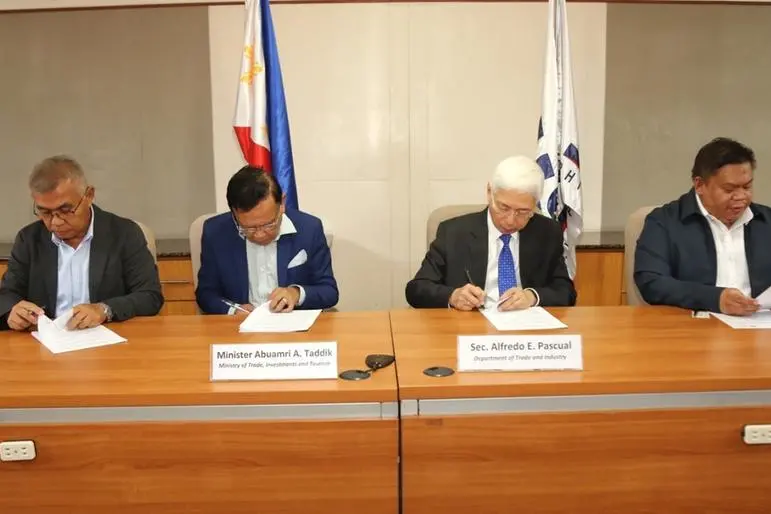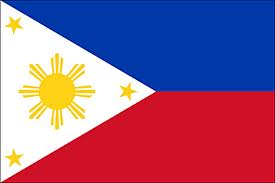The Halal strategic planning follows President Ferdinand R. Marcos Jr.’s message to international investors at the World Economic Forum in Davos positioning the Philippines as a gateway to the Asia-Pacific region.
The plan will also address the growing demand for Halal products and services from both the Philippines ‘domestic market and from the 57 countries that are members of the Organization of Islamic Cooperation (OIC) – spanning Asia, the Middle East, Africa, Europe, and the Americas.
DTI Secretary Fred Pascual said: “Halal as a way of life is not only for the Muslims. It is increasingly being recognized by many non-Muslim consumers worldwide because of ethical considerations, hygiene, fair trade, and just financing.”
“Over the next five years, we plan to achieve PHP230 billion Halal trade and investments and generate 120,000 jobs,” he added. “By maximizing our potential in the Halal industry, together we will help realize the vision of President Marcos Jr. in gaining more investments, which will mean higher economic activity and more quality jobs, and then a better life for all Filipinos.”
Considering the growing Muslim population of 1.9 billion people, the global Halal market is estimated to reach USD 7.7 trillion in market value by 2025, up from USD 3.2 trillion in 2015.
The Department will be leading the nine-government inter-agency taskforce that will create a roadmap which will position the Philippines as the most Halal-friendly trade and investment hub in Asia Pacific.
Secretary Pascual highlighted that the Halal industry forms part of DTI’s four priorities–(1) promoting regional development; (2) attaining food security; (3) upgrading, upskilling, and upsizing micro, small and medium enterprises; and (4) enabling job skills matching and skills upgrading.
The Halal plan is not only confined to food and food-related products but also includes Islamic finance, Halal-friendly travel and tourism, modest fashion, Halal pharmaceuticals and Halal cosmetics sectors.
To cover the wide-ranging aspects of Halal economy, the Halal Taskforce will include the National Commission on Muslim Filipinos (NCMF), Department of Agriculture (DA), Bangko Sentral ng Pilipinas (BSP), Department of Tourism (DOT), Department of Health (DOH), Department of Science and Technology (DOST), Department of Foreign Affairs (DFA) and Mindanao Development Authority (MinDA).
Micro, small, and medium-sized enterprises (MSMEs) are set to benefit from the DTI‘s Halal initiatives.
Some of the initiatives that have been signed and are scheduled to happen include:
Php66 Million partnership deal with BARMM to promote Halal
DTI recently signed a partnership deal with the Bangsamoro Autonomous Region in Mindanao-Ministry of Trade, Investment, and Tourism (BARMM-MTIT), with the budget of PHP 66 million, to promote Halal local goods and services provided by MSMEs. This partnership will create jobs through social entrepreneurship and local tourism, train entrepreneurs, and revive the country’s creative sector.
Trade Conventions and Certifications
The Halal Convention Expo is scheduled on November 21 at the SMX Convention Center, featuring MSMEs. Additionally, a Halal preparedness and certification training program is scheduled for the second week of November, with all preparations underway.
Invest Philippines Week
DTI is also launching Invest Philippines Week, which will feature sessions that will provide support to MSMEs for Halal industry development.
Regional Development
More slaughterhouses in the Philippines will soon be Halal-certified. The Philippine Trade Training Center (PTTC), an attached agency under the DTI, has signed an agreement with entities in CALABARZON for Halal training. More than 100 MSMEs in Marawi are also being prepared to be Halal-certified as part of the economic rebuilding of the Maranao people.
International cooperation
Further, the DTI’s strategic Halal plan follows the bilateral talks of the Philippines and Malaysia during the three-day state visit of President Marcos Jr. in July where the Philippines expressed its commitment to closely coordinate efforts to build capacity in the BARMM area, especially on sectors such as the halal industry, Islamic banking, and food security.
Additionally, the Philippines is set to sign another landmark agreement with the UAE.
Last month, Secretary Pascual and UAE Minister of State for Foreign Trade Dr. Thani bin Ahmed Al Zeyoudi reaffirmed their commitment to enhance and strengthen their economic ties. Both sides have already signed the Investment Promotion and Protection Agreement (IPPA) during the Philippine National Expo Day at Expo 2020 Dubai in February 2022, and are currently in talks regarding the Comprehensive Economic Partnership Agreement (CEPA).




